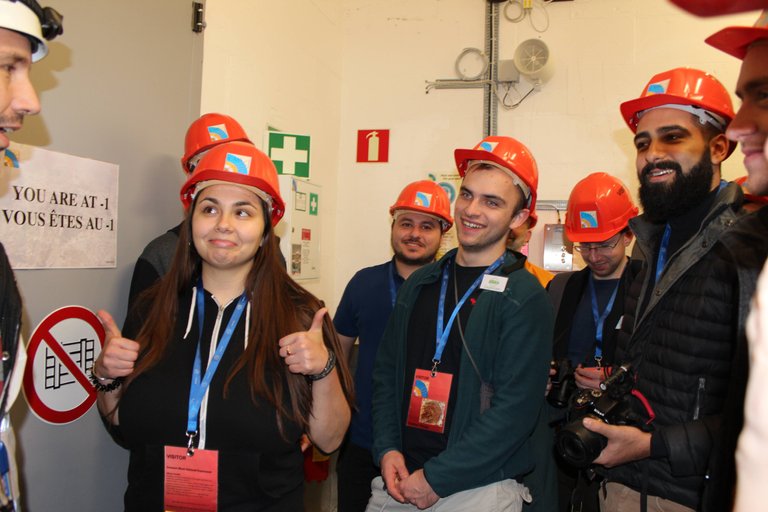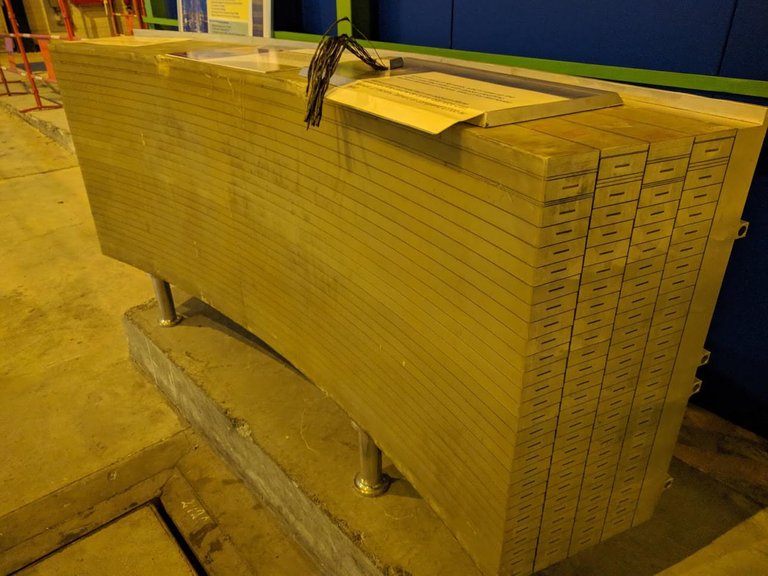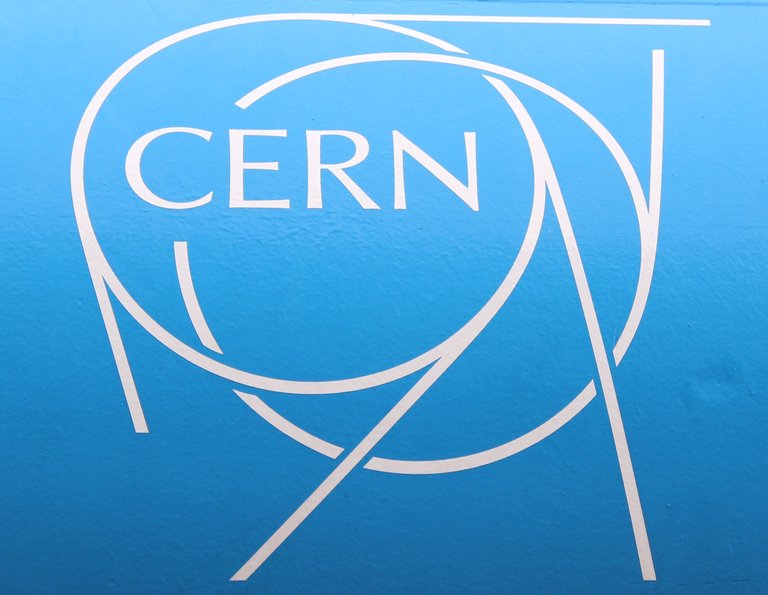Unless you've been living in a cave, you've probably heard that about 20 Steemians from the @steemstem project went to the outskirts of Geneva, Switzerland, courtesy of our tireless leader, planner, and physicist @lemouth, to get a rare visit of the CERN Supercollider, arguably the most technologically advanced lab in the world.
With the help of banks of supercomputers, the physicists at CERN somehow manage to study the billions of particle collisions they intentionally create in a supercollider built a a depth of 100 meters (300 feet) below ground. The collider is so large that it runs between and underneath entire towns! It's said to be the largest machine in the entire world, and the scale of just what we saw was awe-inspiring.
In my series on our trip to CERN, I'll be doing my best to cover interesting tidbits of information I picked up along with some of the incredible images I took on our day trip to this beast of a laboratory. In this tidbit, I'm going to elucidate the nature of absolute zero so that you can better understand my next piece on why CERN is simultaneously the hottest and coldest place in the universe at the same time. (hint: it has to do with absolute zero!)
Absolute zero is a lot like what it says: a temperature that is 'absolutely' cold and which nothing in the universe can possibly be colder. This temperature is −273.15 °C or −459.67 °F (1), but is actually measured in Kelvin, of which zero Kelvin is absolute zero. First postulated in 1906 by Walther Hermann Nernst, this is a theoretical temperature that can never actually be attained(2) since, if something were found to be colder than absolute zero we'd 'move the bar' and change the temperature of absolute zero. This scenario is unlikely since there are many reasons why scientists know things can't get colder than this.

SteemStemers Visiting the CERN Supercollider outside of Geneva, Switzerland.
One of those reasons is energy. As molecules get colder and colder, they move more and more slowly. In other words their ability to transfer heat gets lower and lower. Once at zero Kelvin, there is no more molecular energy (heat) left to transfer.
Another reason is that gases, as they get colder, contract more and more until their volume becomes miniscule at colder and colder temperatures. At zero Kelvin, theoretically, gas would have a zero volume, although, since we can never reach that temperature, we can never know if this is true or not. But we can get molecules slow enough and gases compact enough to know that it's nearly impossible to get them slower or a smaller volume.

A small slice of the absolutely massive 12,000 ton solenoid magnet containing the wires that get supercooled to within one degree of absolute zero
While we can never reach zero Kelvin, scientists have reached temperatures amazingly close to that, and temperatures quite close to that are used in practical scientific applications, like in particle physics. As we mentioned, the supercollider at CERN routinely keeps the temperature of the wires of the solenoid around 1 Kelvin (-272.15 C or -457.87 F) using liquid Helium , the topic of another post soon to come), in order to allow electricity to flow freely through the collider so they can better study the collisions of particles that is the sole subject of their study** .
All images are my own, taken with a Nexus 5x Smartphone or Canon EOS Rebel
** Facts not sourced were obtained directly from the physicists or exhibitions at CERN
Please join us on the SteemStem project!


I was about to answer that the reason is physics... But you explained it very nicely in the rest of the post. I like to stress the fact that the LHC is one of the coolest (coldest?) place in the universe :)
That's my next post! I was already writing about it when I decided that absolute zero should have it's own post, and I'd talk about it first since it's an interesting topic many people might not know about and needed to be introduced before talking about why LHC is the coldest place in the universe.
Thanks for the compliment too, as I'm always worried that I'm going to get something wrong, since I'm far from being a physicist and just trying to explain my best understanding of these complex topics.
I guess I've been living in a cave with the Neanderthals :D.
I'm just kidding.
I know you really had fun at the CERN meetup :)
Great technology, weldone scientist ♨️♨️
Very good post ...
Good post from a great talented man ..thanks for your post
SteemStem project! Great project. Good idea for the best. 🔛🔛
oops, almost last chance to upvote...